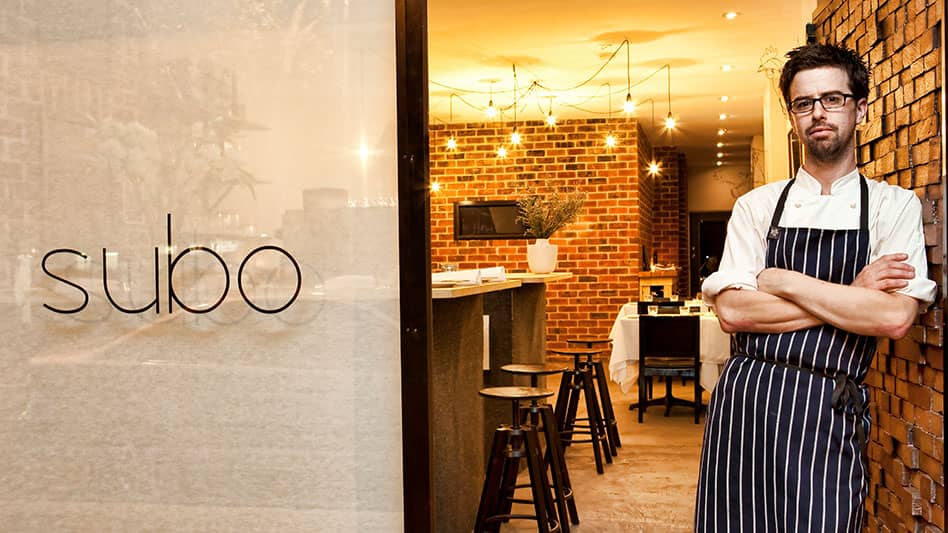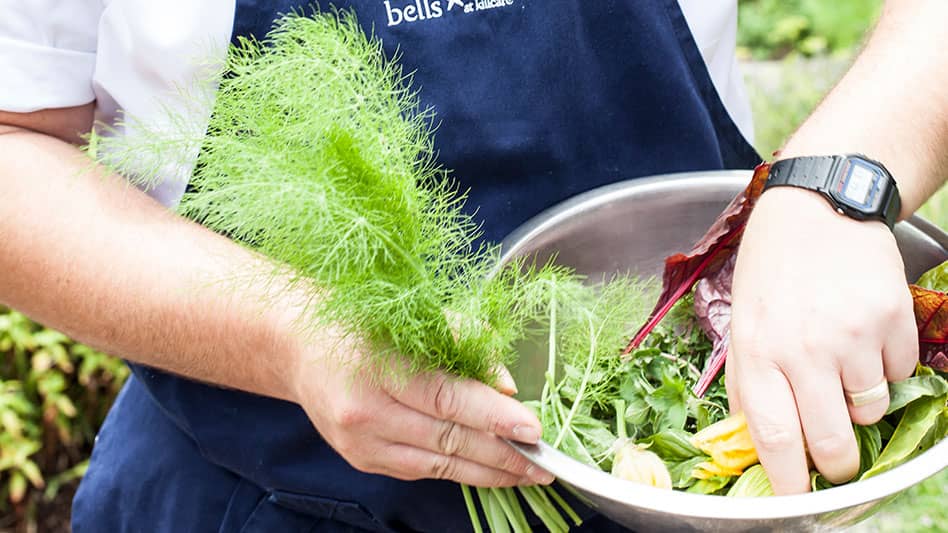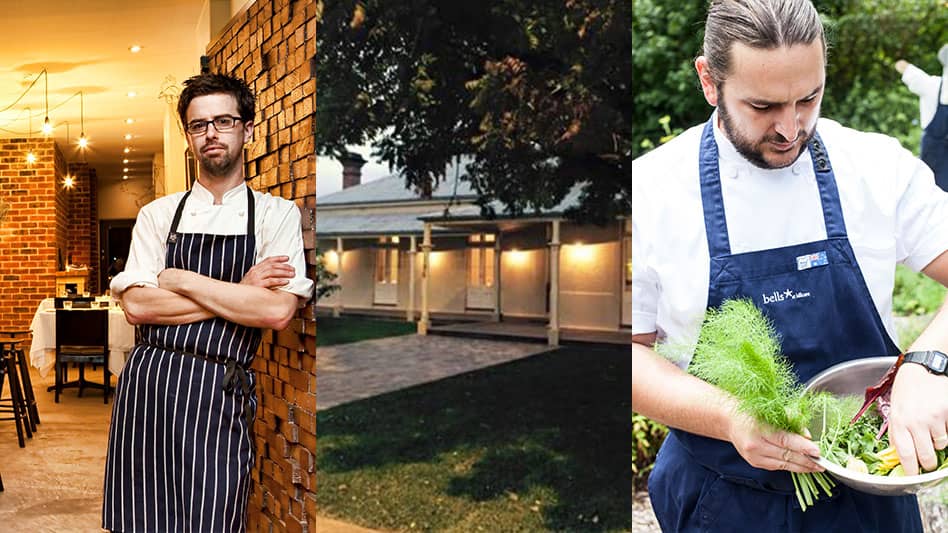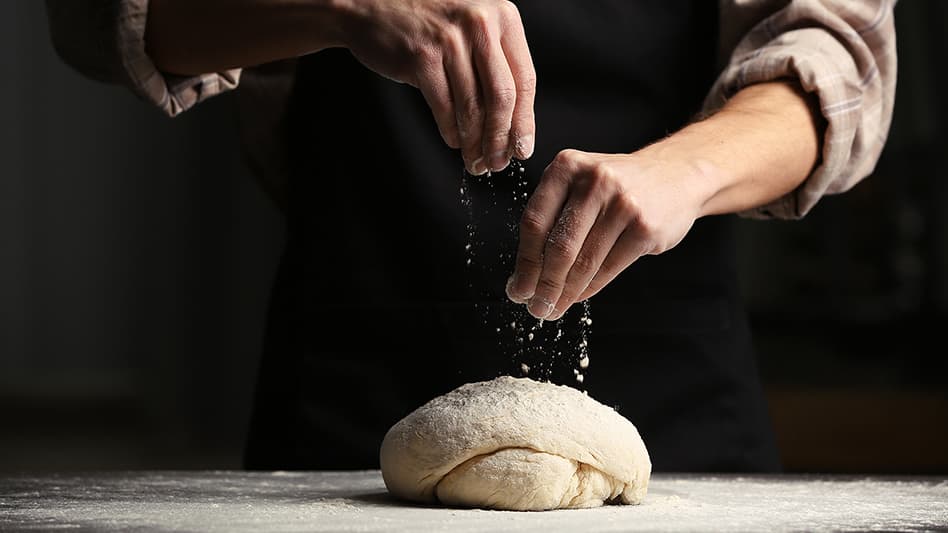Be inspired with recipes created by chefs.
Sign up for updates about products, special offers, news and promotional materials from Goodman Fielder.

Summary
Destination dining, for when it’s more than just a meal.
More than ever before, there is culinary life beyond our cities’ borders. Restaurants have become a reason for a road trip into the countryside. In fact, Australia’s splendid regional restaurants aren’t just worth the drive—they’ve become true gastronomic adventures in their own right. So, what makes regional restaurants special? For Bells at Killcare Executive Chef Dean Jones, he believes that they offer an escape from day-to-day life. “We have more space than a city restaurant to grow our own produce; we’re not just a restaurant with great food, we have grounds that invite the customers to wander around,” he said.
Suzie Pollak-Vincent, Owner and Manager at One Hatted and Subo, in Newcastle believes that being able to garner a more personal relationship with guests is key, particularly at Subo. “The restaurant is quite small, with our sections only being comprised of three or four tables, meaning that each waiter is really able to get to know their guests,” Suzi said. On the flipside, Colin Selwood, Owner and Chef at The Cottage in Scone said: “I don’t think we set ourselves apart from a city restaurant. I’m trying to be as close as I can to a city restaurant whilst dealing with all the challenges of living in the country.”
The trend towards top-notch regional restaurants is certainly thanks to Australia’s food-obsessed population. Shows like Masterchef, My Kitchen Rules and Chef’s Table, combined with the social media revolution, spur on our cooking and food desires. Chef Colin also attributes a growing awareness of paddock to plate philosophies, nose-to-tail eating, and issues surrounding sustainability, traceability and provenance. Regional restaurants are a way for customers to directly connect with where their food comes from. Chef Dean added: “At Bells, we can show them, literally. We have the space to have large vegetable gardens and this is a massive draw card. Some customers don’t know what the natural state of some foods looks like due to pre-packaging, the obsession with plastic and the on-the-go mentality,” he said.

For many chefs, a move to the country means they can get closer to the source of ingredients. “We have great local connections and we are also blessed to have a lot of likeminded farmers in the area,” Chef Dean said. “We are sourcing oysters from Hardy’s Bay, just a stone’s throw away from us, which is amazing.” For Chef Colin, “our beef comes from Wingham Beef Exports, it’s grass-fed and hormone free. We have a new pig farmer from Merriwa, he’s doing pasture raised Berkshires, along with lamb from the same region, rabbits also. There’s honey, garlic, ducks from Walcha, Papanui free range eggs, Nundle smoked trout from Hanging Rock and we are continually sourcing new producers who are close by.”
It’s not all foraging for far-flung ingredients and gazing out the window onto acres of lush paddocks. Staffing is also a major issue for regional restaurants. Chef Colin explained: “There seems to be a bigger push to become better educated and young people leave home for that reason.” Restaurant Manager Suzi agreed, saying: “It can be difficult to find staff who have an understanding of the quality of work that is required.”
Another major challenge is that everything in the country costs more because of transportation, said Chef Colin. “Customers often complain, ‘these are city prices’ but what they don’t realise is that you can’t get produce delivered the next day. In Sydney, I’d put through an order at 11pm at night and it was there the next day and freight free, at that. In the country, it’s days away and there’s freight on top of the cost of the produce. So, in actual fact, I should charge more than the city,” said Chef Colin. “Staff are no cheaper, electricity and gas are no cheaper, rent on a good premise is no cheaper, but everything I put on the plate is far from cheaper.” But, it isn’t fame or money that drives these owners and chefs. It is their passion for creating an experience that extends beyond what is on their customer’s plate. It is destination dining.

Related Ideas
7 Ways to Survive Service in the Festive Season
Here are our tips, straight from the chef's mouth, on how to survive the festive season in the kitchen
A Chef’s Guide to Gluten Free Baking
Want to know how to turn your bakery goods into a gluten free delight? Check out our gluten free baking guide now.



